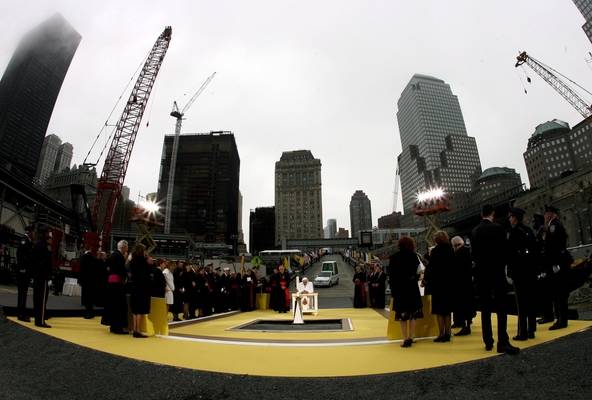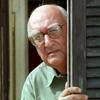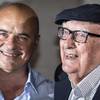US Press & Pope Benedict XVI’s Trip to the U.S.
It was a visit full of expectations, mainly because of the sex abuse scandal which has created a deep wound in the American Catholic Church. There was also the curiosity to get to know the apparently “cold” Pontiff who is much more distant than his predecessor John Paul II.
At the end of this trip it was time for the reaction of the American press, which gave ample coverage of Pope Ratzinger’s visit.
David Van Biema and Jeff Israely, in the April 18 daily report of the Pope’s visit on Time magazine’s website, express their perplexity about Benedict XVI’s speech at UN. The title is rather direct, “The Pope’s Quiet Case for the UN,” and the two journalists give their opinion on this event: “Anyone expecting the Pope to pull off the Fisherman’s shoe and bang the lectern, as Nikita Khrushchev did in United Nations legend, was disappointed. As is becoming typical of Benedict XVI’s American visit — in which impromptu remarks to the press aboard his plane and during a private meeting with sex-abuse victims have routinely outshone speeches previously billed as ‘important’ — the Pope talk at the U.N. billed as ‘watershed,’ was somewhat low-key.” Van Biema and Israely see that during the Pope’s trip “big, unexpected gestures that make headlines today alternate with more subdued lectures that may educate us in his subtleties long after he is back in Rome. The U.N. speech would be one of the latter.” And the bulk of his talk essentially lauded the UN, and more specifically, the Universal Declaration of Human Rights it adopted three years after its founding, whose 60th anniversary was one of the official reasons for the Papal trip.
In the April 21 issue of Newsweek, Lisa Miller tries to explain “why this Pope doesn’t connect,” why he has done “little to appeal to an American flock that is in need of a serious spiritual catharsis.” Miller sees that the American Catholics are in the most critical moment in their history because of the sex abuse scandal. “Ever since the Second Vatican Council,” according to Newsweek, “the gap between what the church teaches and what the American laity practices has been growing ever wider. According to a 2005 survey by Catholic University sociologist William D’Antonio and his colleagues, 58 percent of American Catholics believe you can be a ‘good’ Catholic and disregard the church's teachings on abortion. Sixty-six percent believe you can ignore its position on divorce and remarriage. Seventy-five percent believe you can disregard the ban on birth control. Seventy-six percent think you don’t have to go to church every week.” For Lisa Miller the American Catholics want to “ feel something, a catharsis, a connection to their tradition, a sense that their leaders see and hear how difficult it can be to be a Catholic in this imperfect and chaotic world. Benedict is not the man for this job.”
An editorial in the Washington Post on April 18 notices that Benedict XVI “opted to speak not only to the Catholics who claim him as their spiritual leader. He spoke to all Americans. His words were a positive reminder of our national character and its potential to do great good; they should serve as a challenge that we hope will outlast the memories of his visit.” This visit was the occasion to meet a pope who has the image of a stern and guarded person, especially when compared to his predecessor, John Paul II. Though, contrary to the expectations of some, Pope Benedict “did not scold, but tried to inspire.”
For example, in his messages he also acknowledged failures: “No recounting of the American story is complete without mention of the injustices done to Native Americans or to those brought here as slaves.” The pope reserved some of his harshest words for the church’s own failings in dealing with those priests accused of pedophilia who victimized thousands of children entrusted to the church’s care.
Many articles, inevitably, stress the differences between Benedict XVI and John Paul II, whose canonization is imminent. “Yet,” writes Daniel Johnson in the New York Sun on April 17, “Benedict XVI has swept Americans off their feet, by the simple fact of his transparent, radiant integrity. Here is a figure who, more than any person now alive, represents the conscience of mankind. President Bush was right to greet Pope Benedict XVI as a foe of fanaticism, contrasting those who ‘evoke the name of God to justify acts of terror’ with his ‘message that God is love.’” Johnson observes that in an age of “of moral evasiveness, of equivocation, hypocrisy, and hype, Pope Benedict stands in uncompromising opposition to all that and much more. He faces up to accusations bravely.” Johnson is particularly impressed by the words of the Pope on the airplane to the United States, words expressed to the journalists without any fear: “I am profoundly ashamed. Pedophiles will be completely excluded from the priesthood. It is more important to have good priests than many priests.” These are not the words of “a man who is indifferent to the suffering of the victims. It was important that the pontiff should personally draw a line under what has been a long and traumatic ordeal for American Catholics.” The NYS thinks that the pope still has to fulfill the promise of his pontificate, but this visit to America could represent a crucial step toward doing so. Until now, in Johnson’s opinion, Joseph Ratzinger has seemed a very Eurocentric pope, though in this trip he has reached “the world’s largest and wealthiest Catholic community — wealthy, that is, not only in financial but in intellectual resources.” This richness lies mainly in that America not only has more Catholic universities than the rest of the world, but it also has more impressive Catholic writers and thinkers such as Michael Novak, George Weigel, and Richard John Neuhaus, who have few, if any, equivalents in Europe.
On April 21, on the Washington Post’s website, Eric Gorski tries to take stock of Pope Benedict XVI’s U.S. visit: “He left behind the impression of a compassionate and candid leader who has made a successful transition from professor to pope. But it’s uncertain whether the pontiff’s six-day pilgrimage, which ended Sunday, will make a lasting imprint on a country he obviously admires.” Gorski notices what other columnists in the United States, and indeed not only there, have already remarked after the speech at the UN: “Benedict did not come to make provocative political statements, opting for measured tones. He spoke of keeping immigrant families together but not specific policy prescriptions. He called for peace but did not publicly address the war in Iraq. He took an unusual journey into the personal, recalling the struggles of his youth in Nazi Germany living under a ‘sinister’ regime.”
This visit will be remembered for the Pope’s courage in reiterating, beginning with the flight to the United States, the Catholic Church’s shame for the clergy sexual abuse crisis, and for unforgettable moments such as the prayer at Ground Zero. Though, there is also the sense of something missing, such as clearly addressing the situation in Iraq, or statements on the issue of dialog with Islam, this latter issue which characterized previous trips abroad. And there was no condemnation of the death penalty, especially after the Supreme Court’s verdict. These elements all cast a shadow over a visit that otherwise could have been really memorable.
(Edited by Giulia Prestia)





































i-Italy
Facebook
Google+
This work may not be reproduced, in whole or in part, without prior written permission.
Questo lavoro non può essere riprodotto, in tutto o in parte, senza permesso scritto.